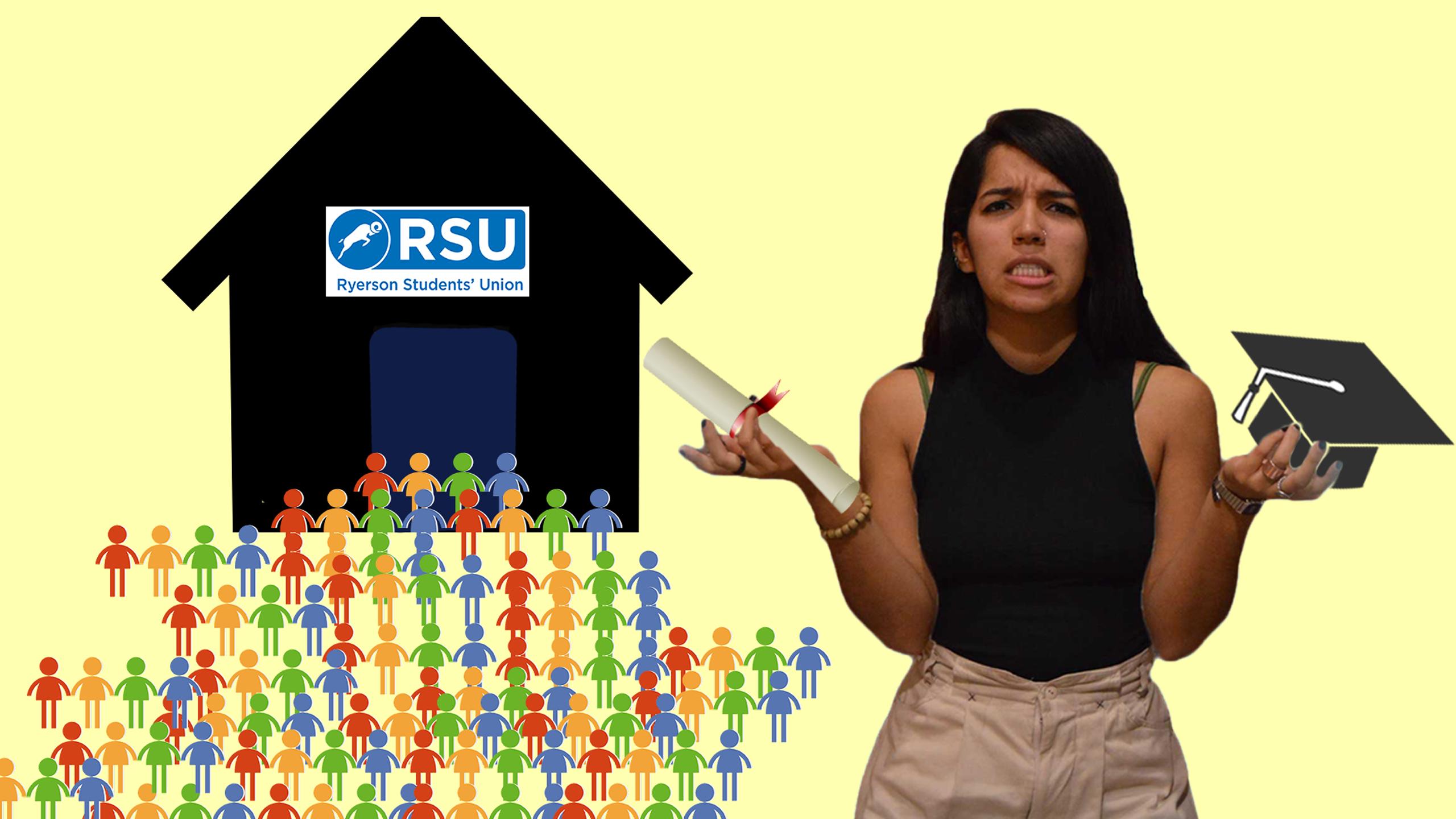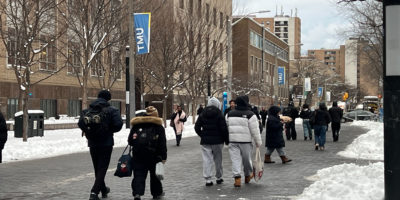By Isabelle Kirkwood
Ryerson is one of nine universities in Ontario with no official union or association for graduate students. For many at the Ryerson Students’ Union (RSU), the establishment of a graduate student union has been a long time coming—but RSU president Susanne Nyaga says an independent union could still be almost two years away.
Nyaga, who is working with the graduate union’s organizing committee, said she expects the union to be fully operational by September 2019.
The organizing committee for a graduate student union was established in an April 2017 RSU Board of Directors (BoD) meeting after then-board member Carolyn Quin presented a motion along with grad student Peter Haastrup.
Here are three reasons why a graduate student union could take two years to form.
Funding without raising fees
Although the graduate student population is growing at Ryerson, it makes up less than 10 per cent of the total student population with about 2,600 students last year, according to the University Planning Office.
Haastrup is one of three active members of the organizing committee working as volunteers to create a graduate student union.
Haastrup, a political studies PhD candidate who is spearheading the organization of the union as an unpaid member of the RSU, said $125 of graduate students’ annual fees went toward the RSU to access their services last year–which totals to $325,000 for 2,600 students.
This year’s RSU budget allocated $89,500 to the graduate student council that runs under the RSU, providing them with funding for the council’s meetings, graduate travel grant bursaries and monthly events, among other things.
However, if the graduate student union were to become independent, this raises questions as to whether it will be able to sustain itself—by providing graduate students with similar services that they are provided under the RSU–without seriously hiking levies on graduate students.
Haastrup said a temporary solution would be for the graduate student union to have a contract with the RSU in the first couple years it runs to access their services, until the graduates’ student union can “fully sustain itself” and provide similar services.
Nyaga said the graduate student union would be able to set its own levy on graduate students, but Haastrup said he doesn’t believe those levies will increase, although the committee still needs to determine a budget to be sure.
“To the best of my knowledge, we’re hoping to keep [student fees] the same,” Haastrup said, adding that the committee is also looking to Ryerson’s Graduate School as well as non-campus organizations to get startup funding for the union.
Space getting ‘tighter and tighter’
Nyaga said finding a location for the new student union would be a struggle, and that she heard the graduate student union would approach the RSU for space if they were unable to get space through the university.
“Space, particularly, is a conversation that hasn’t been had as in-depth as it should be,” she said. “My only worry is that if we do find space, there won’t be any room for growth.”
Nyaga added that she would hope for space in the university to open up for the new union.
“It’s probably something we’ll get into negotiations with the RSU about when the time comes, if we require space from [the RSU],” Haastrup said. He also said that a viable option would be 111 Gerrard St., which is currently owned by the graduate school, and serves as a research and graduate studies building.
Delays due to ‘outdated’ bylaws
Although the organizing committee for this undertaking was officially formed in April, the motion to create a graduate student union has to pass two referendums—one student-wide referendum held by the RSU and another within the Board of Governors (BoG). Haastrup said he expects the student-wide referendum to take place in January 2018.
Haastrup also referred to the RSU bylaws as “outdated” citing them as the reason for delay.
The RSU bylaws state that the referendum must be run as a paper ballot, which he believes is unfair to students because of the varying times students are on campus due to different class schedules.
“The RSU currently runs their elections online,” Haastrup said. “It’s only fair for us to have the [graduate student union] referendum also done online.”
Looking Forward
Haastrup said he predicts the union will be in working order at some point in the 2019-2020 academic year.
“It is a slow process,” Haastrup said. “But we are fighting for graduate students’ rights on campus.”












Leave a Reply